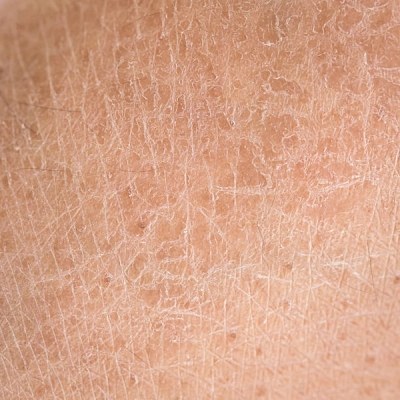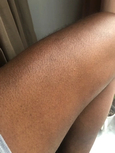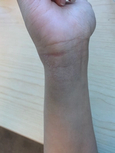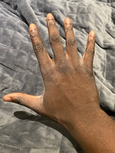How does hard water affect your skin? Tips to protect your skin
Hard water is rich in minerals like calcium and magnesium, which sounds great at first since mineral-rich foods replenish our bodies, but this isn’t necessarily the case when it comes to hard water and skin health. This guide explains how hard water can impact your skin and provides actionable tips.
Is Hard Water Really Affecting Your Skin?
Depending on where you live, yes! Hard water can disrupt your skin’s natural barrier by reducing soap and cleanser effectiveness and leaving behind a residue that causes dryness and irritation. This is common during humid summers or dry winters when your skin is already working overtime to stay balanced, especially body skin. Over time, prolonged exposure to hard water can lead to clogged pores (a precursor to breakouts) and increased discomfort.
Key Effects of Hard Water on Skin
- Dryness: Minerals strip the skin barrier of moisture, disrupting skin pH.
- Irritation: Leftover residue leads to sensitivity.
- Clogged Pores: Long-term exposure causes buildup within pores, leading to breakouts.

Best Practices to Protect Your Skin from Hard Water
Install a Water Softener or Shower Filter
These systems chemically or mechanically reduce calcium and magnesium concentrations, thereby minimizing mineral residue left on the skin. This supports a more neutral skin pH and prevents the disruption of the stratum corneum (the outermost skin layer).
Use Gentle, Non-Stripping, Sulfate-Free Cleansers
Opt for washes that cleanse gently yet effectively. The act of lathering definitely plays an important role in cleansing skin of buildup, dirt, and grime, though we often overestimate how much of a lather our skin actually needs to get clean. Avoid harsh, high-foaming surfactants such as sodium lauryl sulfate, which can compound the drying effects of hard water and further strip the skin. Instead, look out for mild surfactants (and even ones used in baby washes) like Lauryl Glucoside and Sodium Cocoamphoacetate. The goal is a cleanser that leaves your skin feeling refreshed, not tight, squeaky, or stripped.
Mass Index Recommends

Soft Services
Comfort Cleanse
$32
10 fl oz
fragrance-free
The multi-tasking formula will replace your body soap, shaving cream, intimate wash, and—in a pinch—lotion, too.
Apply Moisturizers Immediately After Cleansing
Use barrier-supporting formulations rich in humectants (glycerin), emollients (squalane), and occlusives (petrolatum) to counteract moisture loss and replenish lipid layers compromised by hard water. Depending on your skin type, environment, and texture preference, you may favor a light gel-cream or something on the richer side.
The good news: the world is your oyster when it comes to moisturizer options. The best moisturizer for your skin though, is one you’ll enjoy applying at least once daily, and one that doesn’t clog or irritate your skin, of course.
Mass Index Recommends

Soft Services
Carea Cream
$40
11 fl oz
fragrance-free
A lightweight body lotion with 10% urea that deeply moisturizes and gently exfoliates. This more-than-just-a moisturizer cares for dry and weathered body skin.
Managing Skin Conditions Caused by Hard Water
Hard water doesn’t directly cause skin disease, but it can act as an irritant that worsens certain pre-existing or underlying conditions. Clinical observations¹ and studies have linked hard water exposure to the aggravation of:
Atopic Dermatitis (Eczema): Mineral-laden water may increase transepidermal water loss (TEWL), which can intensify itching, scaling, and inflammation, particularly in individuals with already compromised skin barriers.
Keratosis Pilaris (KP): This follicular keratinization disorder may become more pronounced when skin is repeatedly exposed to mineral deposits, which can further trap excess keratin in pores and increase bumpiness, especially on the arms and thighs.
References:
Jabbar-Lopez ZK, Ung CY, Alexander H, et al. The effect of water hardness on atopic eczema, skin barrier function: A systematic review, meta-analysis. Clin Exp Allergy. 2021;51(3):430-451. doi:10.1111/cea.13797
McNally NJ, Williams HC, Phillips DR, et al. Atopic eczema and domestic water hardness. Lancet. 1998;352(9127):527-531. doi:10.1016/s0140-6736(98)01402-0
Can Hard Water Make Your Skin Dry?
Dry Skin
Skin that's losing more moisture than it's able to maintain.
Also Called
Dehydrated skin, xerosis
Frequently Found On
Arms, legs, feet, hands
Related Concerns
Learn More: Dry Skin


















